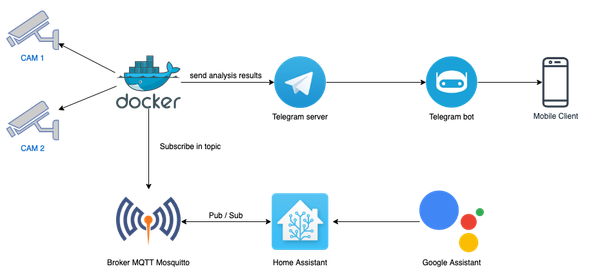How Likely is it You'll Be Hacked?
Do you know how likely it is that you’ll be hacked? Click here to find out.
Table of Content
Let's start with some figures that'll show you how likely you are to be hacked. Number one - the official 2024 figure of the likelihood of a personal hacking event is one in five. Number two - the number of cyberattacks on utilities increase by more than 200% in 2023. Number three - the number of overall cyber attacks increased by 104% in 2023.
There are more figures, but those are enough to highlight how much of an issue it's becoming. Read on to learn more.
Understanding Your Digital Footprint
Do you understand your digital footprint? To put it simply, it's pretty much everything you do online. And trust us, it's absolutely everything you do. You can use essential data tools to erase it, but understanding what it is and where it comes from is crucial. And even then, the data will build up again, so it's a constant cycle of trying to protect yourself.
This data accumulates from browsing history, social media activity, online shopping habits, and app usage, so you can see why it builds back up so quickly again.
To minimize your digital footprint, you use practices like using private browsing modes, being selective about what personal information you share online, and regularly reviewing and adjusting the privacy settings on your social media accounts. And always trying to remove your data.
Common Entry Points for Hackers
Hackers frequently exploit several entry points to gain access to personal data - there’s always something in the news about a new method for them. Weak or reused passwords are the most common vulnerabilities - over 80% of data exposures come from weak or stolen passwords.
Outdated software can also provide an easy target for cybercriminals looking to exploit known vulnerabilities if they're not patched.
And then there's the problem of unsecured Wi-Fi networks - especially public Wi-Fi - they're a hotbed for intercepting user data. To combat these risks, it is essential to use strong, unique passwords.
The Role of Social Engineering
Social engineering is becoming a massive problem. It involves manipulating individuals to expose confidential information, exploiting the human element of security systems. And it's working well, so many people are falling for it.
Techniques like phishing - attackers send emails posing as reputable entities to extract personal details or distribute malware - are too common. According to research, scammers send, on average, 3.4 billion phishing scam emails daily. Other methods include pretexting - attackers fabricate scenarios to obtain personal data - and baiting. Baiting offers enticing deals to lure victims into security traps. The best defence against social engineering is education and vigilance.
Enhancing Your Cybersecurity Practices
Enhancing your cybersecurity is more than just basic precautions. It means a commitment to ongoing security practices. You can think about things like using two-factor authentication (2FA), for example.
It needs a strong password and a second verification factor to authenticate a login or transaction. It dramatically reduces the chances of unauthorized access. Utilizing Virtual Private Networks (VPNs) encrypts your internet connection, securing your data even over less secure networks.
Regular security audits can help identify and rectify vulnerabilities in your security practices. It'll ensure you remain protected against emerging threats.
The likelihood of being hacked can vary based on individual behaviours and security practices, that's true. But as you can see from the statistics in the introduction, the likelihood you'll be hacked is becoming a matter of when not if.











